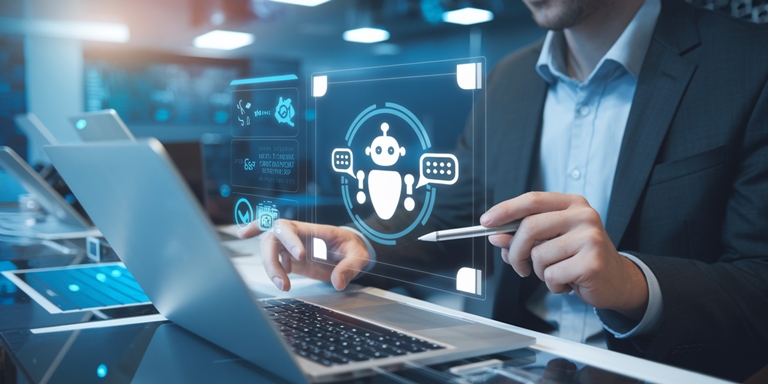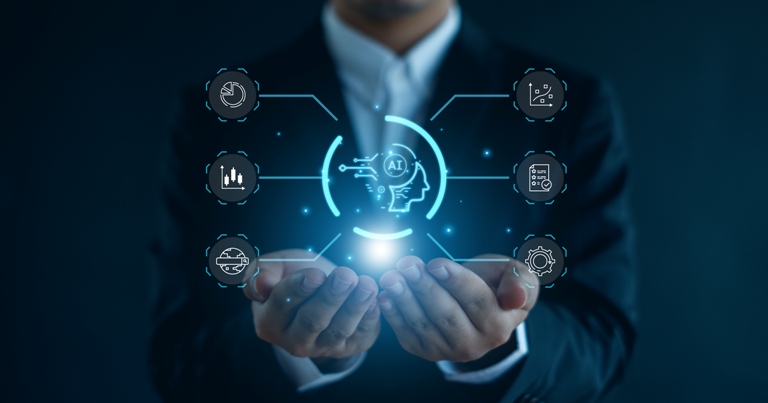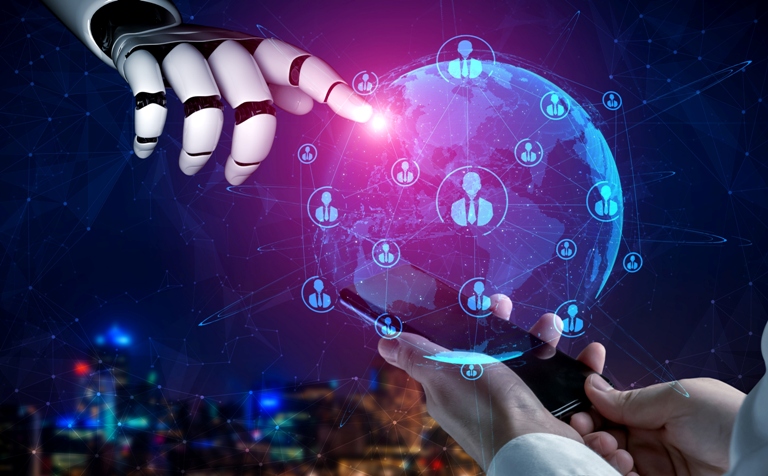
The work environments are evolving fast. From remote work to digital onboarding, the way companies manage their people has changed dramatically. At the core of this transformation is the fusion of artificial intelligence (AI) and machine learning (ML) into the human resource management system. These technologies are not just enhancing HR; they are redefining it. As businesses adopt HR management software in India, AI and ML are helping automate repetitive tasks, improve decision-making, and personalise employee experiences — enabling HR teams to become more strategic and efficient.
A human resource management system (HRMS) is a digital platform that helps organisations manage all aspects of their workforce.
📘 A human resource management system is software that streamlines HR tasks such as hiring, payroll, performance, and training.
It includes tools for:
Traditionally, human resource management systems were used for record-keeping and compliance. But with AI and ML, they are evolving into intelligent systems that can analyse data, predict trends, and offer actionable insights.
Read More: What is HRMS? A Comprehensive Guide for HR Professionals in 2025
In simple terms, AI refers to machines that can mimic human intelligence, while machine learning (ML) is a subset of AI that enables systems to learn from data and improve over time. When integrated into a human resource management system, these technologies can:
This shift enables HR professionals to focus more on strategy and less on administrative tasks.
| HR Function | AI/ML Role | Impact on HRMS |
|---|---|---|
| Recruitment & Hiring | Resume screening, candidate matching, chatbots | Speeds up hiring, reduces bias, improves quality of hire |
| Performance Management | Real-time feedback, goal tracking, recognition systems | Enables continuous performance tracking and improvement |
| Learning & Development | Skill gap analysis, adaptive learning, course recommendations | Personalizes and optimizes employee training |
| Workforce Planning | Demand forecasting, succession planning, resource allocation | Supports strategic decision-making |
| Compliance & Risk | Policy monitoring, audit trails, risk prediction | Enhances legal compliance and risk management |
| Employee Engagement | Sentiment analysis, pulse surveys, engagement scoring | Boosts morale, identifies at-risk employees |
| Analytics & Decision-Making | Predictive analytics for turnover, performance, hiring success | Empowers HR to make data-driven, proactive decisions |
Recruitment is one of the most critical functions of HR and also one of the most time-consuming. AI and ML are transforming this process by making it faster, more accurate, and less biased.

By integrating these tools into the human resource management system in India, companies can reduce time-to-hire and improve the quality of their hires.
One of the most powerful applications of AI and machine learning (ML) in HR is predictive analytics. This involves using historical data to forecast future outcomes.
These insights make the next-gen HRMS systems a strategic asset for data-driven decisions.
Today’s employees expect personalised experiences—and modern employee performance management software powered by AI delivers just that.
This level of personalisation improves employee satisfaction and retention, making the human resource management system in India more employee-centric.
Read More: How HR Software is Redefining Employee Engagement

Traditional reviews are annual and often subjective. AI and ML allow continuous, objective performance tracking.
This approach builds a culture of continuous improvement and accountability within the HRMS.
Training is essential for employee growth, but generic programs often fail to meet expectations. AI and ML enhance learning effectiveness by tailoring to individual needs.
This ensures that the intelligent HRMS solutions supports continuous learning and upskilling.
Strategic workforce planning is crucial for long-term success. AI and ML help HR teams anticipate future needs and plan accordingly.
These capabilities make the human resource management system a vital tool for organisational planning.
Compliance with labour laws and internal policies is a major responsibility of HR. AI helps ensure that organisations stay compliant.
This reduces legal risks and enhances the credibility of the HRMS software in Kolkata.
Engaged employees are more productive and loyal. AI and ML help HR understand what drives engagement and how to improve it.
These insights enable HR to take proactive steps, making the human resource management system a tool for building a positive workplace culture.

While the benefits are clear, integrating AI and ML into HR also presents challenges.
Organisations must ensure that their HRMS is ethical, fair, and transparent.
AI and ML are not replacing HR professionals; they are improving their capabilities. By automating routine tasks and providing deeper insights, these technologies allow HR teams to focus on what matters most: people.
The human resource management system of the future will be a seamless blend of human empathy and machine intelligence.
AI and machine learning are not just trends; they are transforming the way organisations manage their people. From recruitment and performance to engagement and compliance, these technologies are making the human resource management system smarter, faster, and more effective. By embracing this digital transformation, companies can build more agile, inclusive, and productive workplaces. The future of HR is here, and it’s powered by AI.
A human resource management system is software that helps companies manage recruitment, payroll, performance, training, and more.
AI enhances HRMS by automating routine tasks, analyzing large data sets, offering predictive insights, and personalizing employee experiences, making HR more strategic and efficient.
Key benefits include improved hiring, reduced costs, better compliance, and higher employee engagement.
When implemented with proper oversight, AI in HRMS can be ethical, secure, and beneficial.
It uses past data to forecast outcomes like employee turnover, hiring success, and performance trends.
Yes, many cloud-based HRMS solutions are scalable and cost-effective, making them ideal for small and medium-sized businesses aiming to streamline HR operations.
An HRMS automates resume screening, matches candidates using AI, schedules interviews, and provides insights into hiring metrics to improve the recruitment process.
Yes, most HRMS solutions can be integrated with tools like payroll software, project management systems, and communication platforms.
Look for ease of use, AI capabilities, mobile access, scalability, integration options, customer support, and features that match your company’s HR needs.